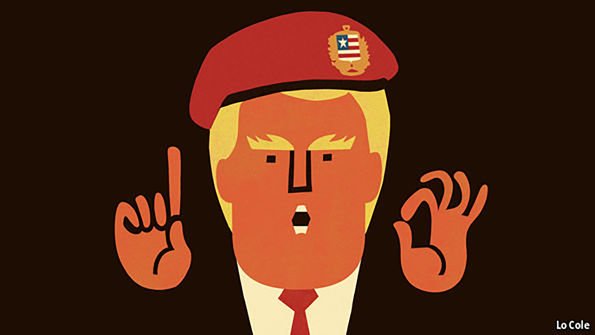Argentina’s Mauricio Macri weathers storm as Peronists in disarray Floundering opposition struggles to challenge reform
HOURS AGO by: Benedict Mander in Buenos Aires In recent weeks, Mauricio Macri, Argentina’s president, has faced a storm of criticism. After failing to condemn an official who offended many when he played down the gravity of Argentina’s military dictatorship, he is now accused of favouritism towards his father’s company in negotiations over the repayment of a $300m debt to the state after a botched privatisation of the post office in the 1990s. But however politically tone deaf Mr Macri may seem to his critics, the former businessman remains in a strong position ahead of midterm elections later this year, with the Peronist opposition in a state of disarray since its defeat in the 2015 presidential elections after 12 years in power. “It worries me that Macri seems to be making so many unforced errors, but this scandal over the post office will blow over. Macri is still so much better than the previous lot, who are a bunch of crooks,” says Jimena Morales, a well-heeled architect who voted for Mr Macri. Indeed, the latest survey by local pollster Poliarquia shows Mr Macri’s approval ratings rebounding to 58 per cent in January, the highest level in 6 months. Whether or not Peronism can recover will be critical ahead of midterm legislative elections in October that could enable the market-friendly leader to consolidate his liberalising economic reforms. “Peronism is in a state of dissolution. It is over,” says Julio Bárbaro, who was a congressman in the 1970s under the final government of Juan Domingo Perón, the movement’s legendary founder. “It is just a memory now,” he adds. Related article Interview: Argentine president Mauricio Macri looks to end confrontational politics The president of Argentina says his austere approach can revive the economy and turn the page on mistakes of the past The problem for Peronists is that no new leader has emerged to eclipse the charismatic Cristina Fernández de Kirchner, who models herself on the Argentine heroine Evita, Peron’s second wife. She commands considerable loyalty though more moderate Peronists prefer to distance themselves from the divisive leader, who is fighting off multiple accusations of corruption. “Peronism is in deep crisis. It has been unable to break the equation of Cristina [Fernández] versus Macri that dominated in the 2015 elections, leaving Macri well positioned in the electoral scenario of 2017,” says Carlos Germano, a political analyst. Mr Germano argues that Argentines are showing a remarkable level of tolerance towards the reforms implemented by Mr Macri last year. Despite a devaluation and slashing unsustainable subsidies by hiking utility tariffs, fuelling inflation in 2016 to about 40 per cent, most Argentines remain optimistic about their economic prospects this year, he says. Although Peronists have a majority in congress, Mr Macri’s coalition controls their traditional heartland, the province of Buenos Aires. Including the capital, which is also under the government’s control, this accounts for almost 40 per cent of voters and is led by María Eugenia Vidal, the most popular Argentine after the Pope. There is intense speculation over whether or not Ms Fernández will choose to run for a seat in congress in the province of Buenos Aires, where she maintains strong support in poorer areas. If she does and her candidacy splits the Peronist vote, Mr Macri’s party stands to win more seats in the strategically crucial province. For Daniel Scioli, the Peronist candidate chosen by Ms Fernández who lost to Mr Macri in the 2015 elections, it is too early to write off Peronism. “Never underestimate Peronism. It is a party for exercising power, with experience and good leaders. It may be going through this situation, but at some point it will come out with initiatives and proposals that will rouse the people,” assures Mr Scioli, who recently commended Donald Trump’s defence of national industry and workers on Twitter with the hashtag “Argentina First”. Indeed, some analysts quote Peron, who said that Peronists are like cats: when it seems like they are fighting, they are in fact reproducing. Mr Scioli, a former governor of Buenos Aires province, cast doubt on Mr Macri’s ability to reactivate the economy, expressing concern about debt levels and shrinking salaries. “The government’s reforms have led to a deterioration in many economic and social indicators. They say this is necessary so that later we can be better off — I hope that time comes,” he says. Officials say that — after five years of stagnation — there is some evidence that the economy has turned a corner. The economic activity indicator of the state statistics agency, Indec, climbed 1.4 per cent in November after rising 0.5 per cent in October. For Mr Bárbaro, the demise of Peronism is irrelevant to the political fortunes of Mr Macri, who he argues is simply profiting from the resentment sowed by the divisive Ms Fernández. “In Argentina, those in power often end up defeating themselves. They don’t need an opposition.”






